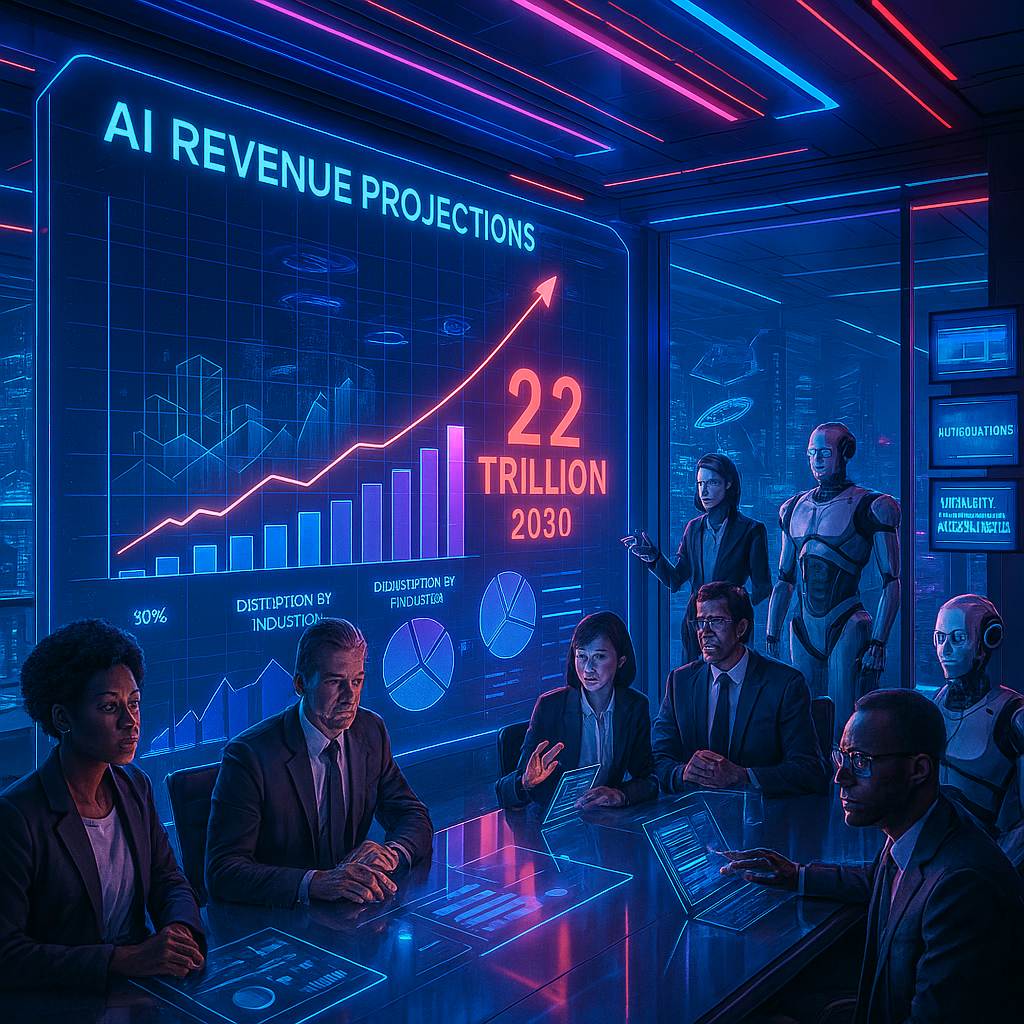Key Takeaways
- Top story: Bain warns the AI sector must generate $2 trillion in revenue by 2030 to avoid collapse. This underscores existential questions about sustainable growth and innovation.
- Teachers are integrating AI into lesson preparation but remain cautious about its use during live classroom sessions. This reveals cultural tensions at the frontlines of education.
- The Biden administration is advancing new federal guidelines on AI, emphasizing privacy protections and the need to address algorithmic bias.
- Apple and Nvidia are increasing investments in AI-powered robotics. This demonstrates significant commitments by tech leaders to automation with broad societal impacts.
- Society: Evolving attitudes toward AI highlight deep uncertainty regarding the degree of trust warranted in “alien minds” when human judgment is at stake.
- AI society impact analysis remains central as sector turbulence sparks wide-ranging philosophical and ethical debate.
Introduction
On 28 September 2025, Bain & Company’s warning that the AI sector must generate $2 trillion in revenue by 2030 to avert collapse highlights not only urgent economic pressures, but also deeper philosophical questions shaping AI society impact analysis. As policymakers introduce new guidelines and educators reconsider AI’s cultural role, the day’s developments reflect a landscape in transformation. All this is challenging prevailing ideas about progress and trust in artificial intelligence.
Top Story
Bain Warns of $2 Trillion AI Revenue Challenge
Bain & Company has projected that artificial intelligence could disrupt up to $2 trillion in global corporate revenue by 2027. The consulting firm stated that the adoption of AI-driven automation and efficiency measures is expected to fundamentally alter competitive dynamics across major industries.
Industry Vulnerabilities
According to the report, sectors such as professional services, software development, and customer service are facing the greatest transformation. Financial services might see up to 35 percent of current revenue streams affected by AI integration. Healthcare and education are also seen as moderately but increasingly exposed to these changes.
Balancing Human and AI Capabilities
Corporate leaders are reassessing strategies for implementing AI. Marie Chen, leader of Bain’s Global Technology Practice, stated that “the key challenge isn’t just about technology adoption, but finding the right balance between human expertise and AI capabilities.”
Stay Sharp. Stay Ahead.
Join our Telegram Channel for exclusive content, real insights,
engage with us and other members and get access to
insider updates, early news and top insights.
 Join the Channel
Join the Channel
Also Today
Education and Training
Prominent universities have announced major updates to their computer science and engineering programs. Institutions including Stanford and MIT are introducing mandatory AI ethics courses alongside technical instruction.
In the corporate sphere, Google and Microsoft have expanded AI training for their employees, with combined investments surpassing $500 million. These initiatives stress the importance of collaboration between humans and AI, as well as critical thinking in automated environments.
Policy and Regulation
European regulators have detailed the initial phase of AI Act compliance requirements, which will take effect in January 2026. The framework is designed to set clear guidelines for high-risk AI applications while promoting innovation in sectors considered lower risk.
On the international stage, the International Standards Organization has published preliminary frameworks for AI governance. These guidelines promote transparency, accountability, and human oversight as central requirements.
Research Developments
Researchers at Berkeley have demonstrated new approaches for enhancing AI’s contextual language comprehension. These techniques are showing promise for reducing instances of hallucinations and improving reliability in complex reasoning.
The IEEE has released updated guidelines for ethical AI development, reflecting insights from recent deployments. The revised framework emphasizes human agency and prioritizing societal benefit.
What to Watch
- World AI Summit in Singapore, 5–7 October 2025
- EU Commission AI Act Technical Standards Review, 12 October 2025
- Congressional AI Oversight Committee Hearings, 15 October 2025
- Q3 Earnings Reports from major tech companies, 20–24 October 2025
Conclusion
Bain’s warning illustrates the scale of change that artificial intelligence may bring. It is prompting renewed attention to AI society impact analysis across sectors and regulatory domains. As responses in education, policy, and ethics evolve, the need for responsible innovation will play a defining role in shaping AI’s societal meaning. What to watch: Outcomes from the upcoming World AI Summit, EU Act technical review, US Congressional hearings, and major tech earnings reports will offer new signals for global AI governance.





Leave a Reply